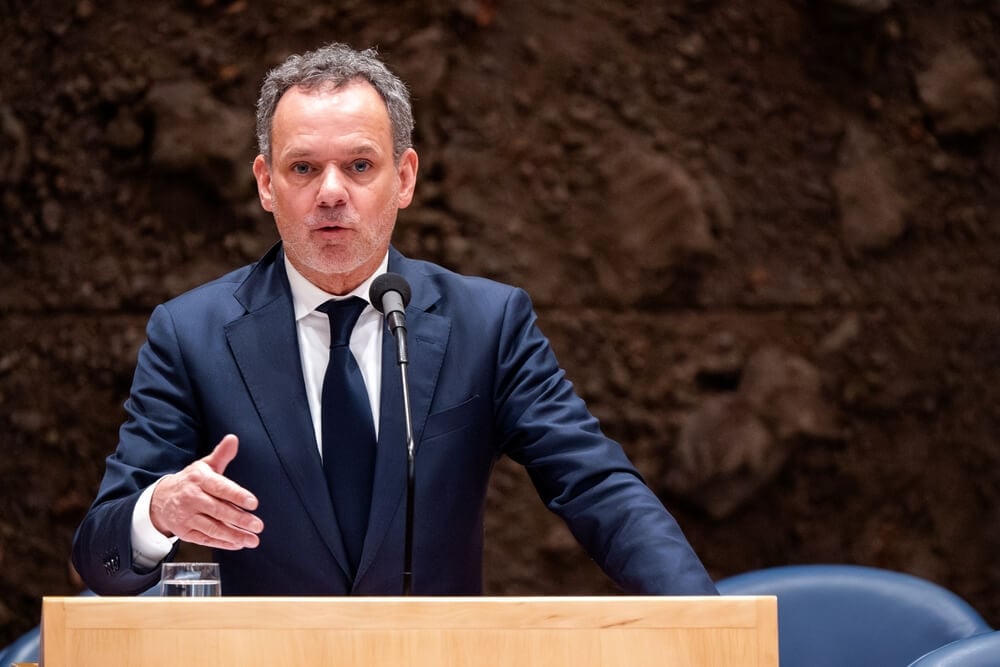Amid reports of US displeasure with European chatter of announcing the recognition of a Palestinian state at a UN conference on 17 June, it looks more likely the European Union may take a lesser step and impose some trade and other restrictions on Israel.
The EU is expected to decide by later this month whether to take action against Israel in protest against the conduct of its war in Gaza.
The most significant move would be suspension of the EU-Israel Association Agreement, but Europe is unlikely to reach unanimity for such dramatic action. However, it could agree to impose limits on trade and travel.
Amid the US and Israeli sound and fury over Europe’s apparent desire to stop standing on the sidelines of the Israeli-Palestinian conflict, will it stand firm on sanctions?
Diplomatic pressure builds on Israel
Diplomatic pressure on Israel has been steadily building up in recent weeks, in contrast to the swift reaction to Russia’s invasion of Ukraine and to the European public’s dismay at Israel’s devastating war in Gaza after the Hamas attacks on 7 October 2023.
For the first six months after the attacks, Europe was mostly silent until Kamala Harris, then US vice president, in March 2024 delivered a sharp statement criticising Israel for the “inhumane” conditions in Gaza.
Starvation and destruction have dramatically worsened in Gaza
Western governments have regularly called for a ceasefire. But starvation and destruction have dramatically worsened in Gaza while Israel has stepped up calls for the expulsion of Palestinians while steadily increasing its hold over the West Bank.
By the next meeting of EU foreign ministers on 23 June, a review should be completed of Israel’s compliance with Article 2 on respect for human rights in the association agreement, which has given Israel preferential trade access to the EU single market since 2000.
EU’s pressure on Israel
There is little doubt that Israel has not complied with the human rights article given the UN’s evidence of war crimes and crimes against humanity.
But any suspension of the agreement requires EU unanimity, which is unlikely given Israel’s ties with states such as Germany, Italy and Hungary.
However, there is wiggle room to suspend the preferential trade part of the agreement because this only needs a qualified majority consisting of 15 EU member states, representing at least 65% of the EU population.
There are other steps open to Europe if reaching a qualified majority proves impossible
If reaching a qualified majority also proves impossible, there are other steps open to Europe, such as suspending Israel’s participation in the Horizon Europe science programme.
Banking and financial sanctions would be meaningless without US compliance, but travel restrictions on individuals are in Europe’s remit, and these would further hit Israel’s business and tourism sectors.
There is also the possibility of freezing Israel’s foreign exchange reserves held in Europe, as was done with Russia over Ukraine. These, in time, could be used for compensation to the Palestinians, the Financial Times suggested.
Any of these moves would trigger US anger, and the EU would need to steel itself. Just this week, Mike Huckabee, the US ambassador to Israel, attacked France’s advocacy of Palestinian statehood.
“If France is really so determined to see a Palestinian state, I’ve got a suggestion for them – carve out a piece of the French Riviera and create a Palestinian state,” he told Fox News. “They are welcome to do that but they are not welcome to impose that kind of pressure on a sovereign nation.”
From statements to possible actions
But in Europe’s favour is that Trump has turned more critical of Israel and said he wants to “stop that whole situation as quickly as possible.”
If recognition of Palestinian statehood is delayed, public pressure will likely increase for Europe to do more than make statements. These have increased in recent weeks, starting with Caspar Veldkamp, the Dutch foreign minister.
In early May, he wrote to Kaja Kallas, the EU’s top diplomat, saying he believed Israel was in breach of the association agreement, kicking off the EU’s review.
 Caspar Veldkamp, the Dutch foreign minister wrote to Kaja Kallas, the EU’s top diplomat, saying he believed Israel was in breach of the association agreement
Caspar Veldkamp, the Dutch foreign minister wrote to Kaja Kallas, the EU’s top diplomat, saying he believed Israel was in breach of the association agreement
On 20 May, the leaders of the UK, France and Canada said in a joint statement they “strongly opposed” Israel’s expansion of its military offensive action in Gaza and threatened to “take concrete actions” if Israel did not stop.
“We will not stand by while the Netanyahu Government pursues these egregious actions,” said British Prime Minister Keir Starmer, French President Emmanuel Macron and Canadian Prime Minister Mark Carney.
The UK has suspended its trade talks with Israel and has imposed sanctions on Israeli settlers and organisations backing violence against Palestinians. Sweden has pushed for EU sanctions, and other countries such as Ireland and Spain have been very outspoken against Israel.
Even Germany has condemned Israel’s air strikes on Gaza, but it is likely to pull back from supporting any strong action against Israel for historical reasons.
The “number one” thing European countries could do is impose an arms embargo on Israel, said Husam Zomlot, Palestinian ambassador to the UK.
While such a move appears distant, European countries will be under pressure to act at the 17 June UN conference to be co-hosted by France and Saudi Arabia in New York.
Whether Europe holds its nerve may depend on the erratic whims of Donald Trump. Against him is European anger at the destruction in Gaza while Israel shows no sign of desisting.